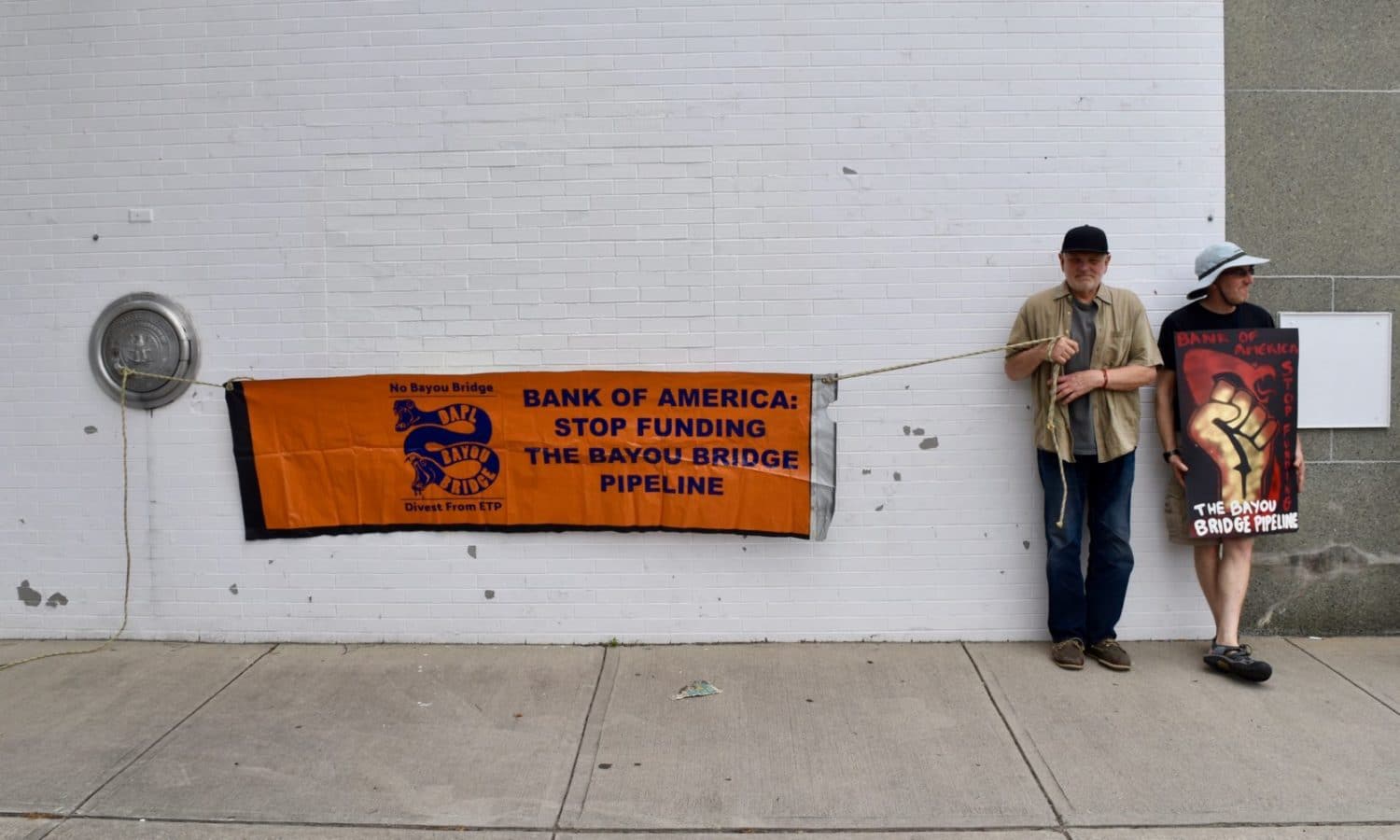Bank of America finances pipelines, FANG is asking that you move your money elsewhere
For the past year and half the FANG Collective has been supporting the L’eau Est La Vie camp that is resisting the Bayou Bridge Pipeline in Southern Louisiana. The Bayou Bridge Pipeline would connect with the Dakota Access Pipeline system to bring oil from North Dakota to export terminals on the Gulf Coast. Tree-sits have been set up deep in
July 30, 2018, 11:32 pm
By Steve Ahlquist
For the past year and half the FANG Collective has been supporting the L’eau Est La Vie camp that is resisting the Bayou Bridge Pipeline in Southern Louisiana. The Bayou Bridge Pipeline would connect with the Dakota Access Pipeline system to bring oil from North Dakota to export terminals on the Gulf Coast. Tree-sits have been set up deep in the swamp to block the path of the pipeline.
Here in Rhode Island, the FANG Collective organized a protest outside Bank of America on Hope Street in Providence. Bank of America finances some of the most controversial pipeline projects across the continent, including the Bayou Bridge, Mountain Valley, Line 3, Atlantic Coast, Mariner East and the Keystone XL pipelines. (In addition to financing fossil fuel projects, Bank of America also profits from private prisons and immigration detention facilities. Bank of America is a financier of GEO Group and CoreCivic, two of the biggest private prison companies in the United States.)
FANG member Arely Diaz closed her Bank of America bank account during the protest. “When you’re poor and you live in a poor community you don’t really know what credit union are,” said Diaz. “But I do think it’s important to contribute to the movement by letting [Bank of America] know that their investment in Energy Transfer Partners and in the Bayou Bridge Pipeline is completely irresponsible.”
It took maybe ten minutes for Diaz to close her account. “Today I divested from them, I’m holding them accountable,” said Diaz. “I let them know that these investments are racist. Environmentally racist.”
Attending the protest was Sagamore Po Wauipi Neimpaug of the Pokanoket Nation.
Though he was there in support of FANG’s efforts against pipeline expansion, the Sagamore was able to provide an update about the Pokanoket Nation’s ongoing battle with Brown University over land in the Mount Hope Area of Bristol, Rhode Island that the tribe claims ownership of. It was nearly a year ago that the Pokanokets, with the help of the FANG Collective, established “a long term encampment,” overlooking Mount Hope Bay.
The land in question is the place where Metcom (King Philip) was assassinated at the end of what is known as King Philip’s War in 1676. The Sagamore traces his lineage to Metacom. There was no written transfer of the land, says the Sagamore.
After about a of occupation the Pokanokets reached an agreement with Brown University.
Now, nearly a year on, the Sagamore reports that, “Basically, Brown breached the agreement.
“The onus was on the Pokanoket Tribe to invite in these other tribes that Brown claimed had a historical interest in the land,” said the Sagamore. “Which they do not.” Brown’s insistence on inviting other tribes to the talks over the land led to ta break in the talks.
“Basically Brown has agreed to give us some of the land back,” said the Sagamore. “We haven’t really determined how much yet.”
Ray Two Hawks Watson of the Mashapaug Nahaganset Tribe spoke about the ways in which Native American sites are routinely desecrated. He spoke also about a recent meeting and treaty signing with the King of Hawaii.
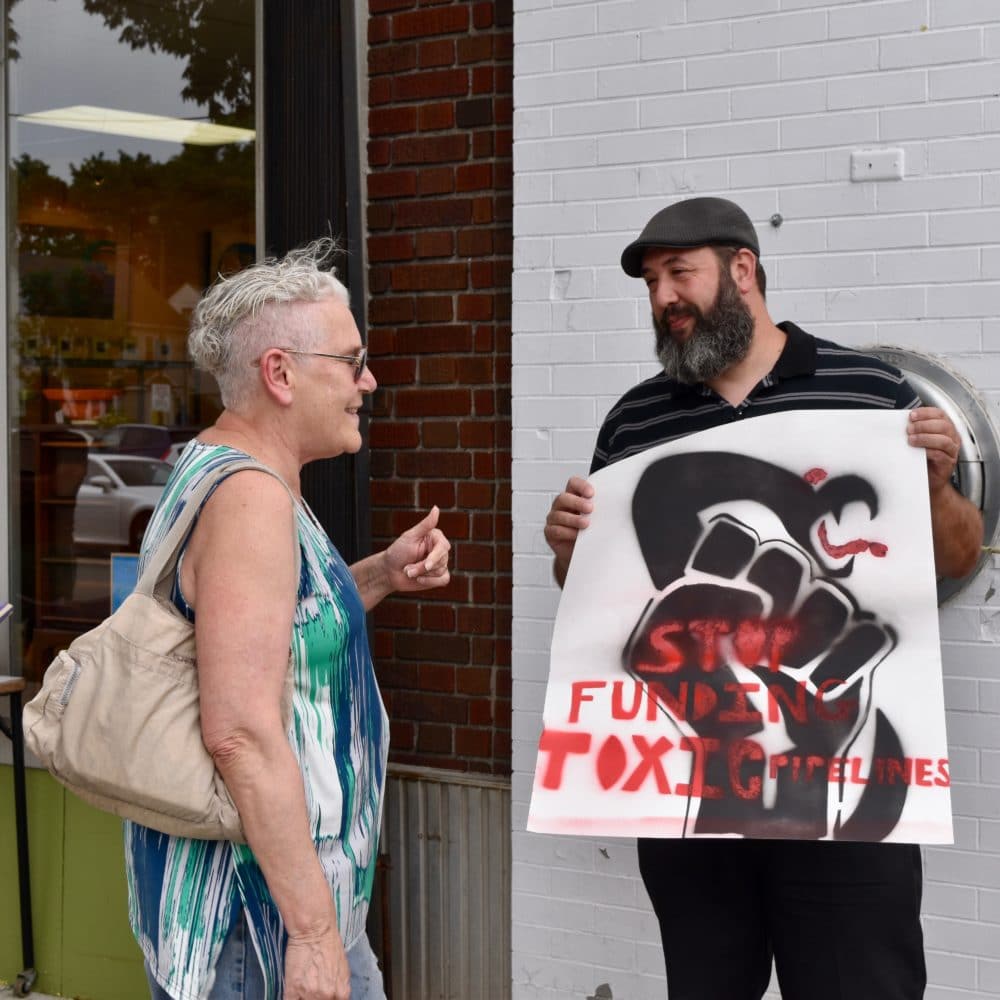
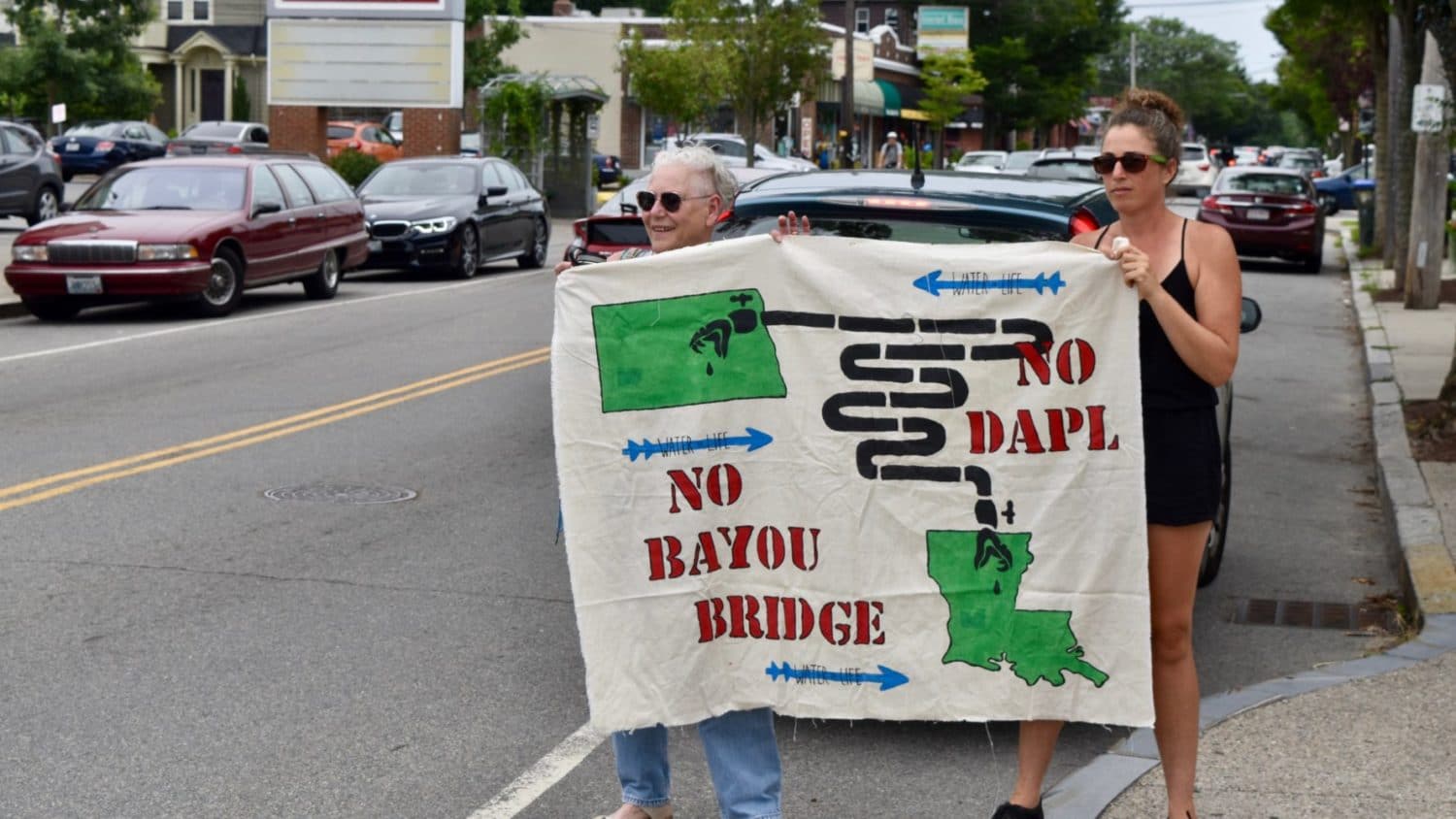
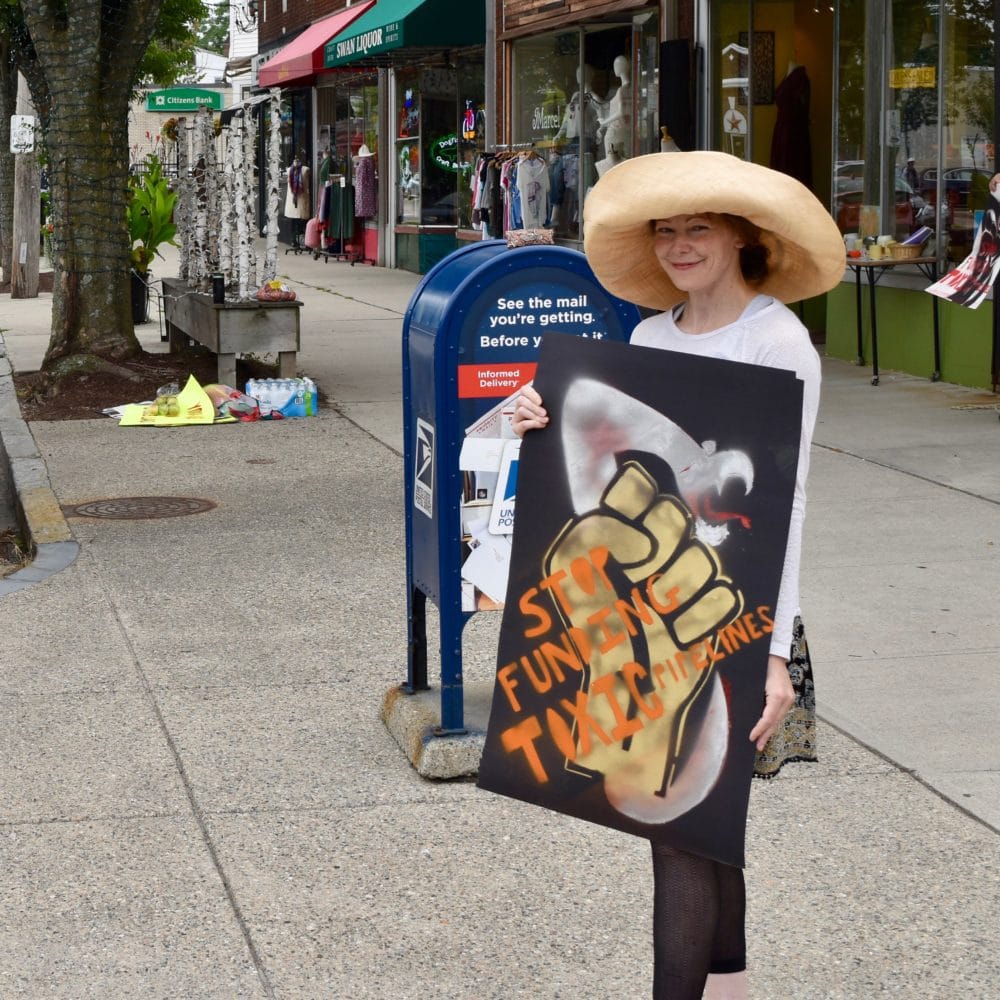
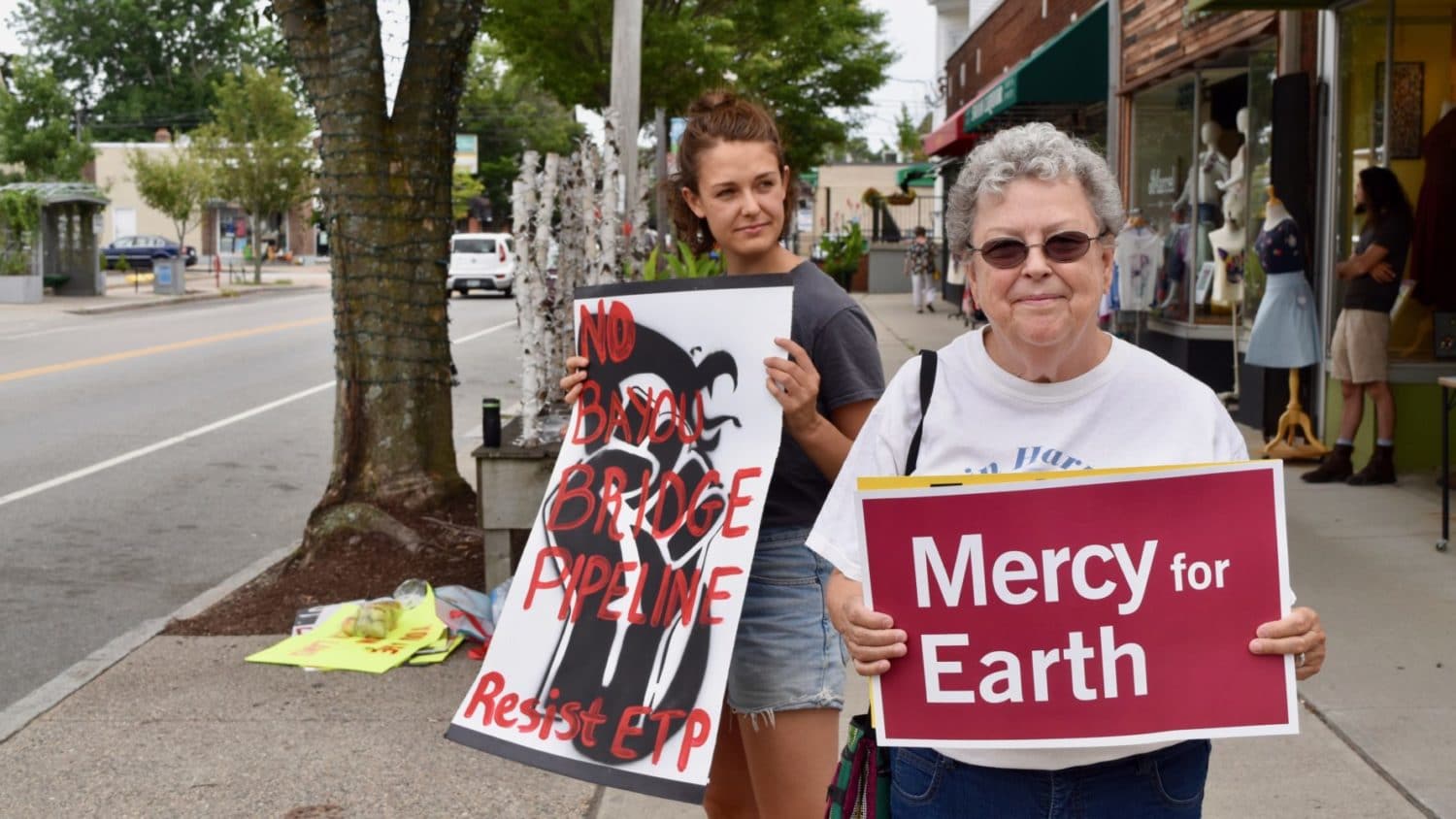
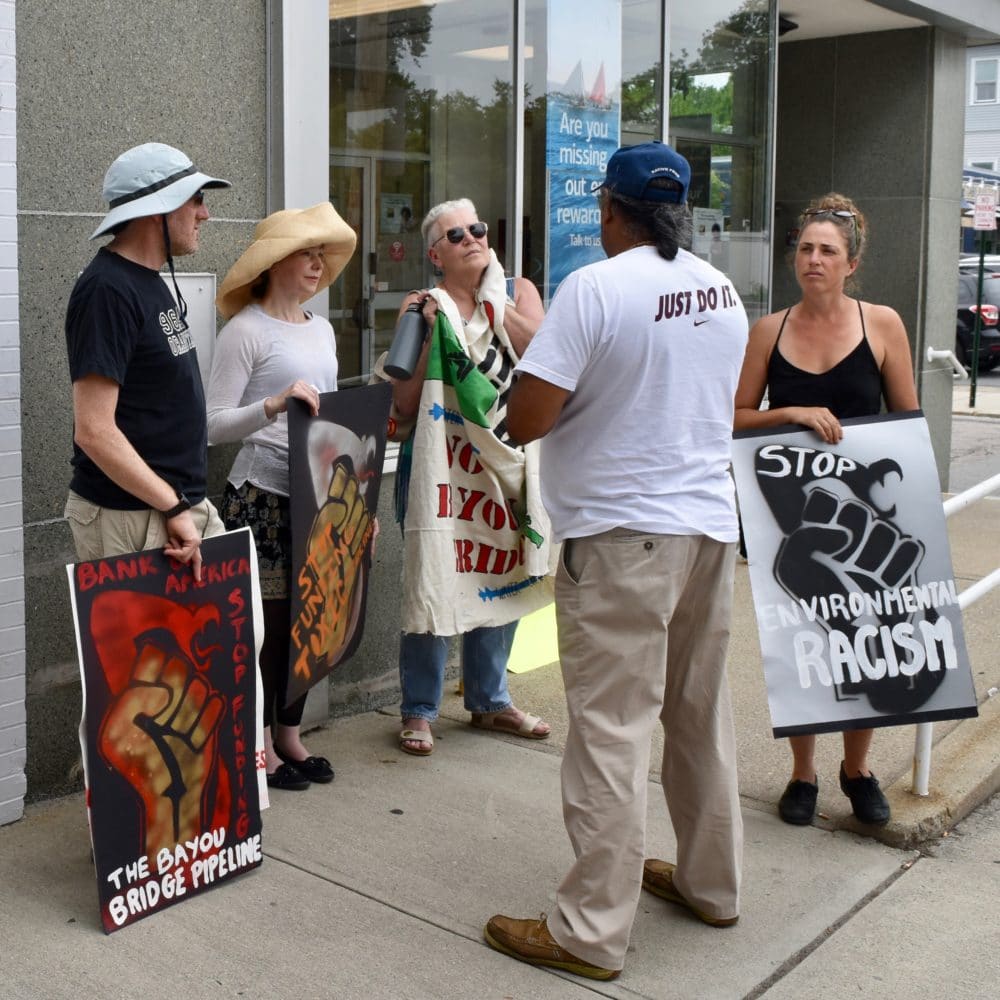
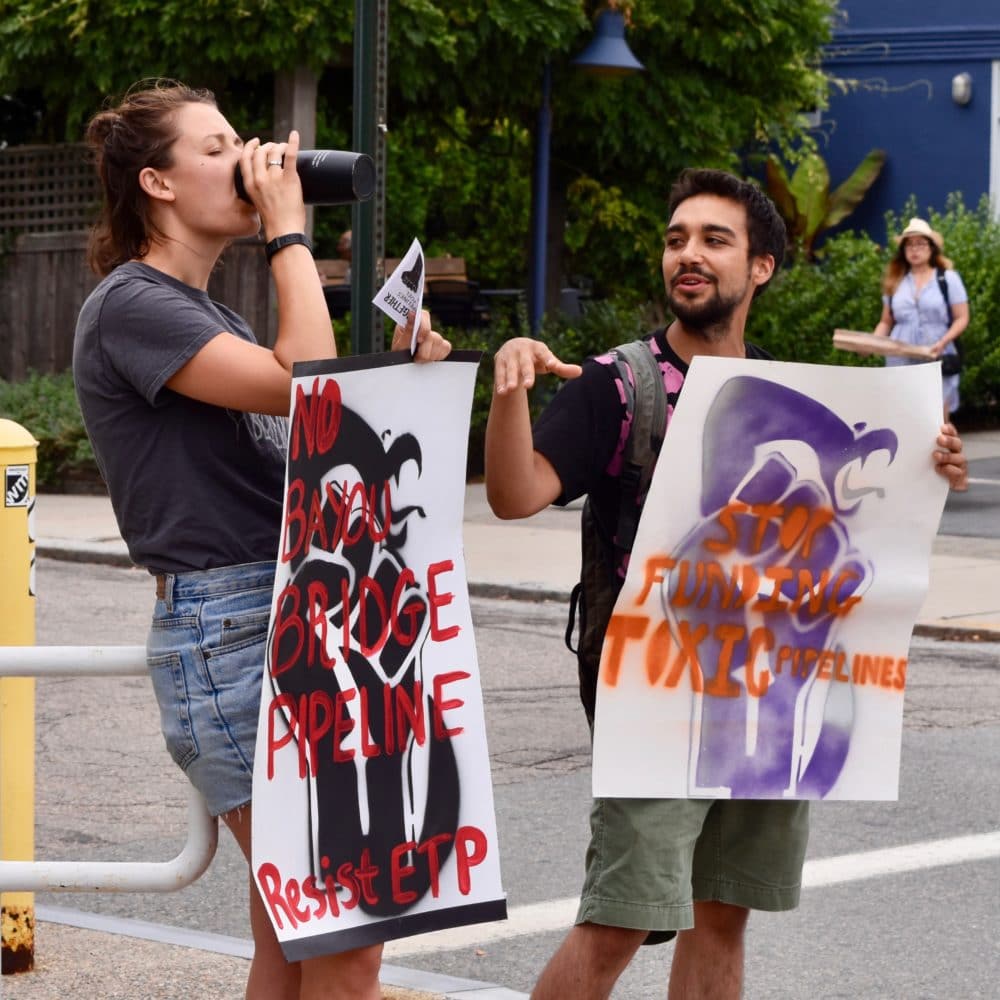
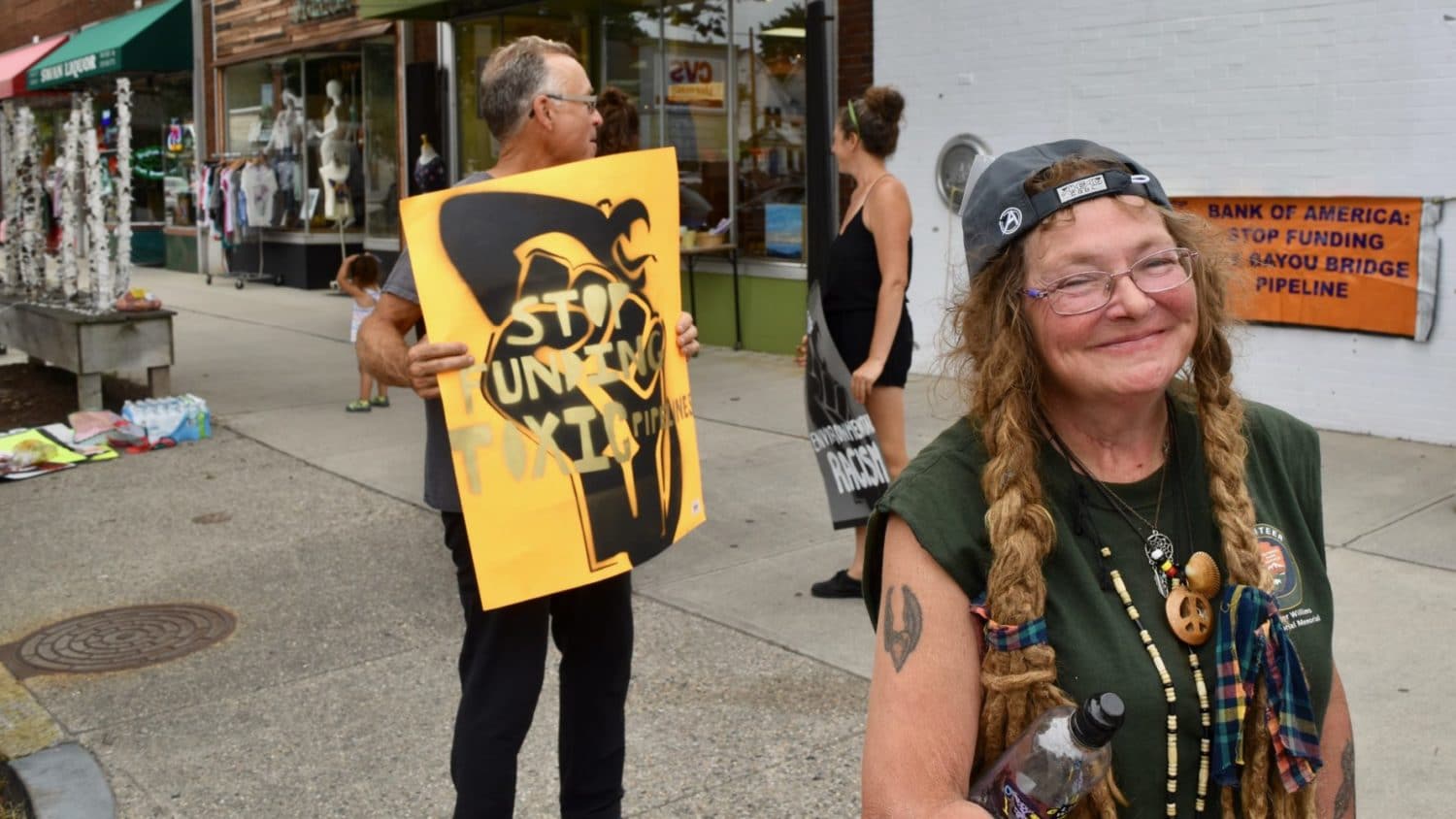
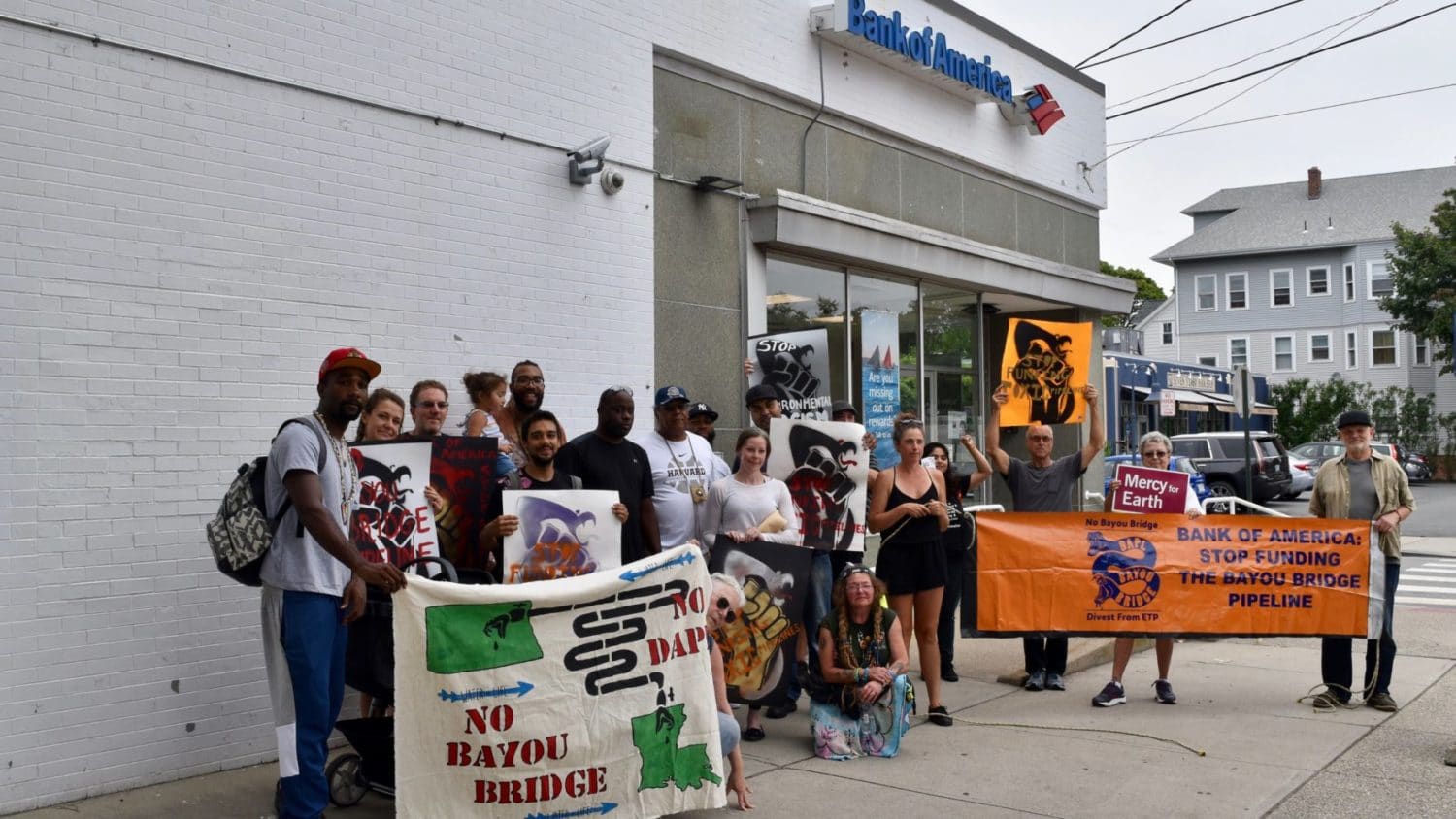
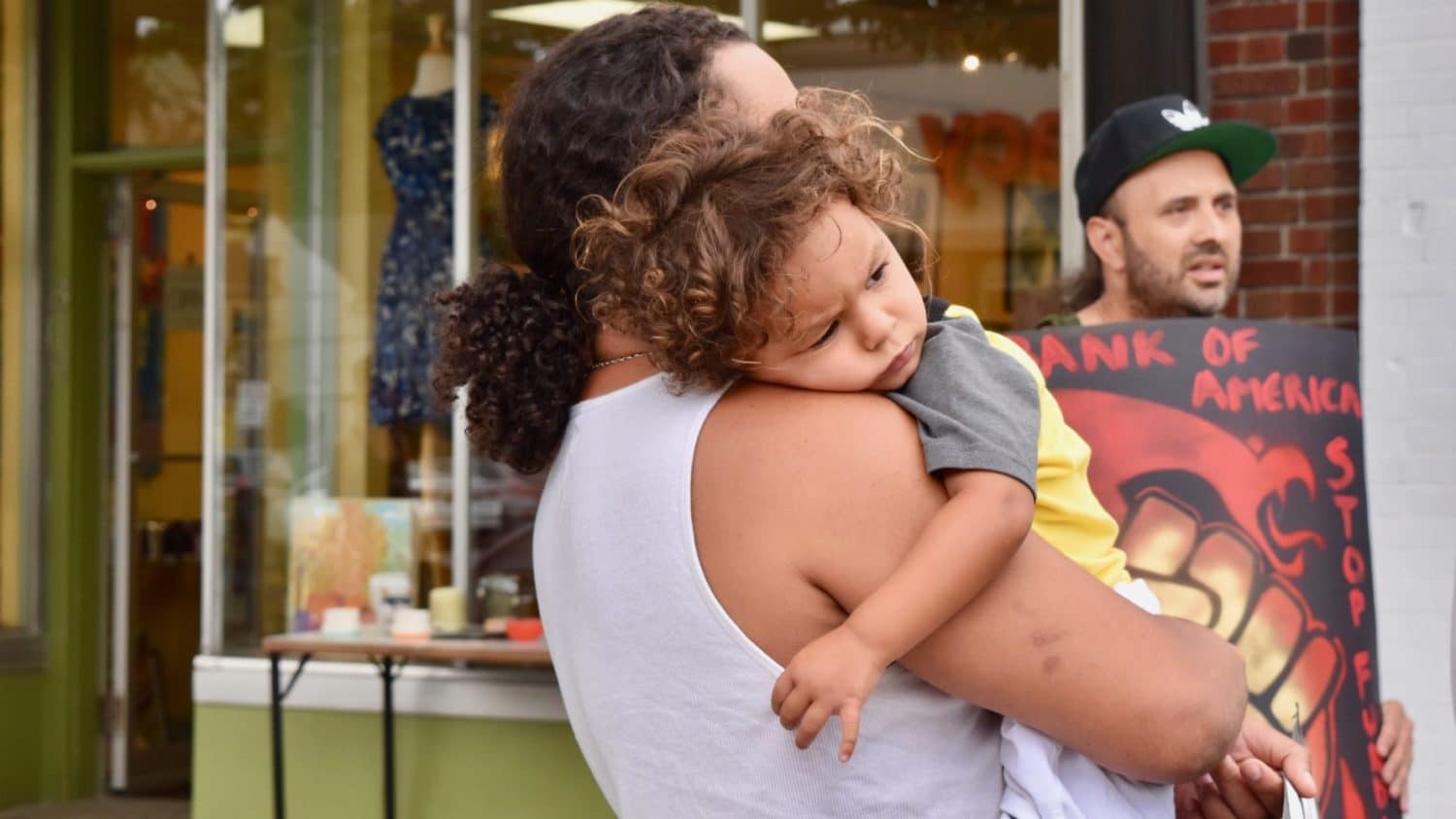
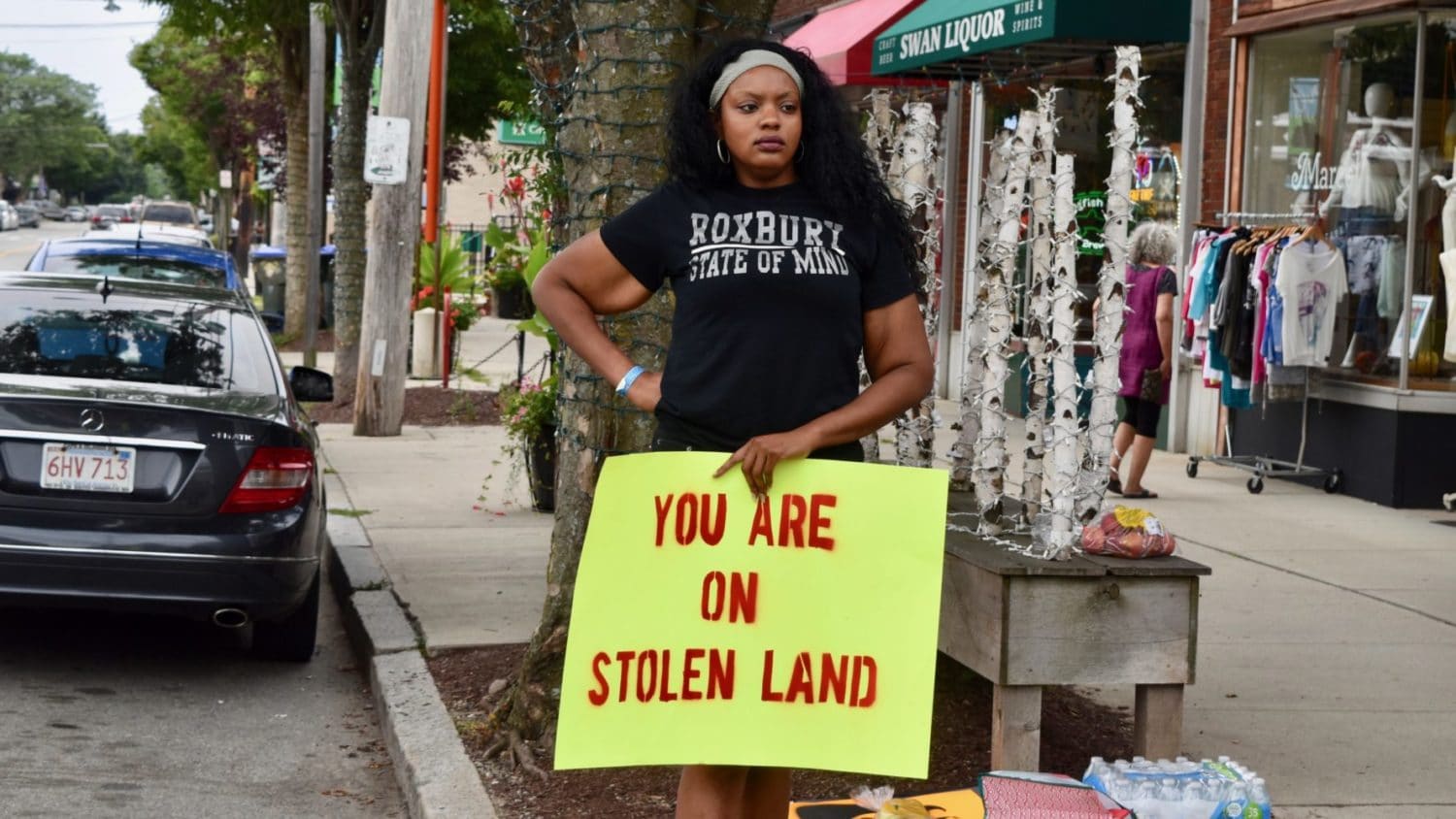
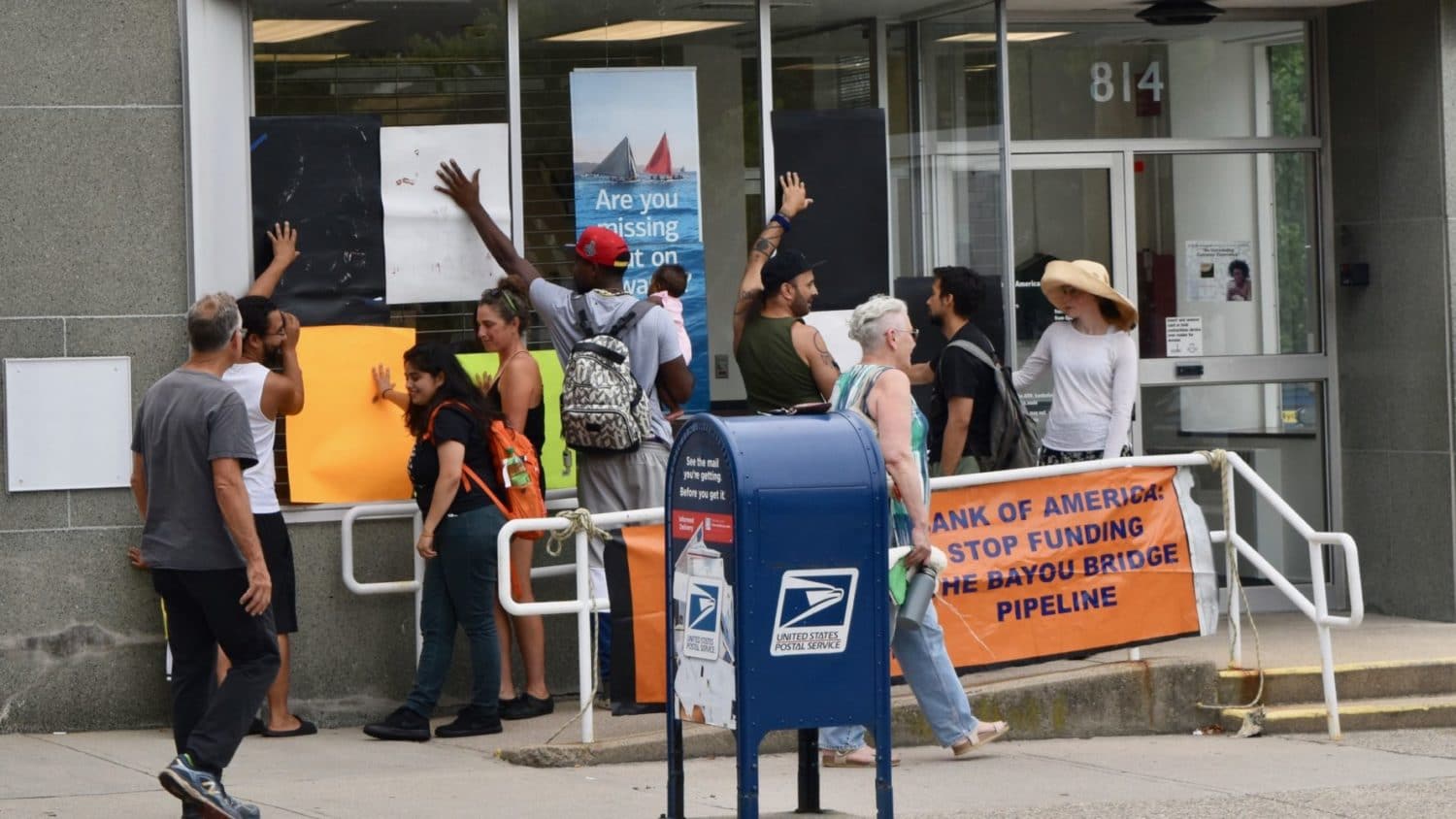
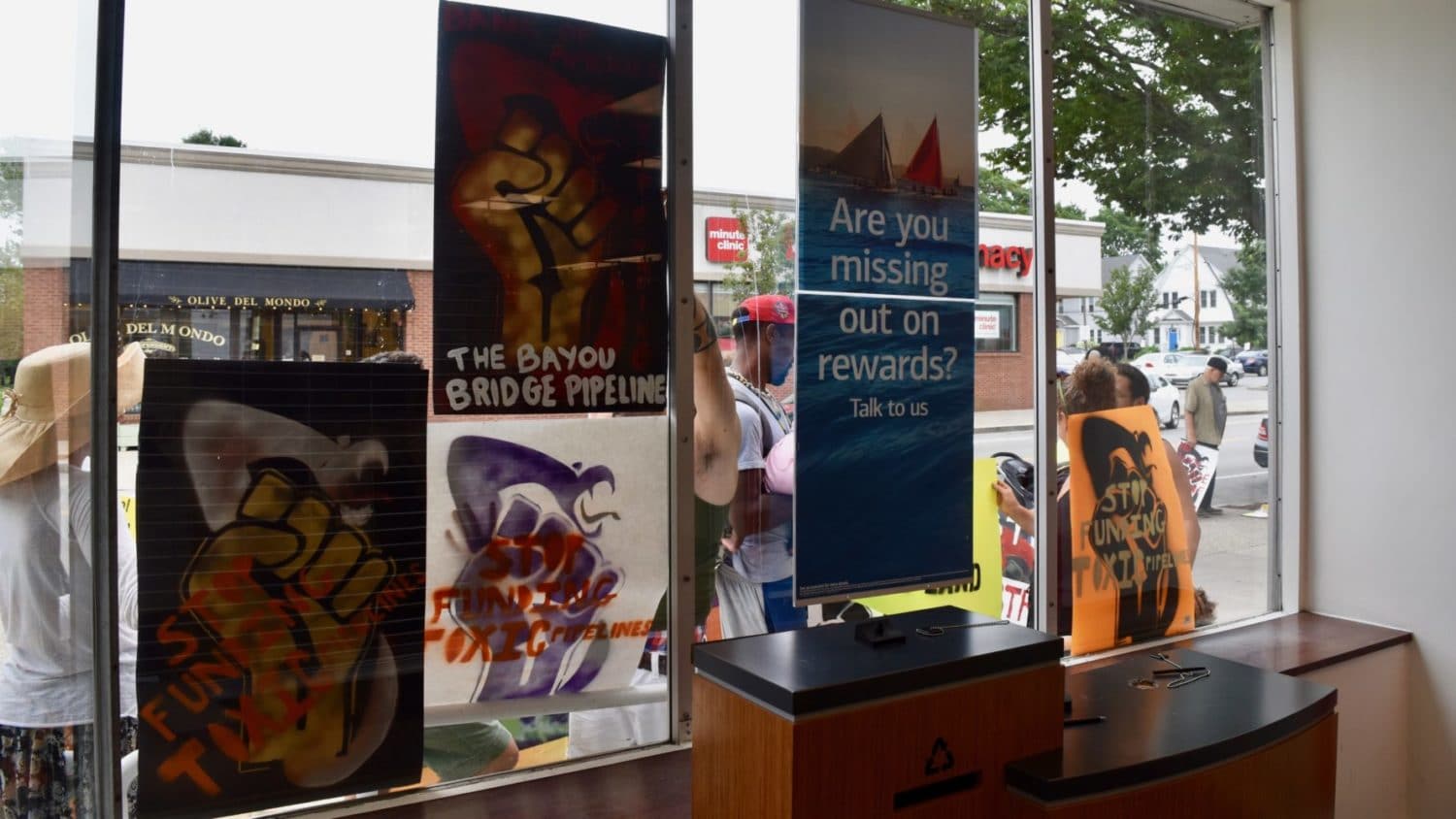
UpriseRI is entirely supported by donations and advertising. Every little bit helps:
![]()



